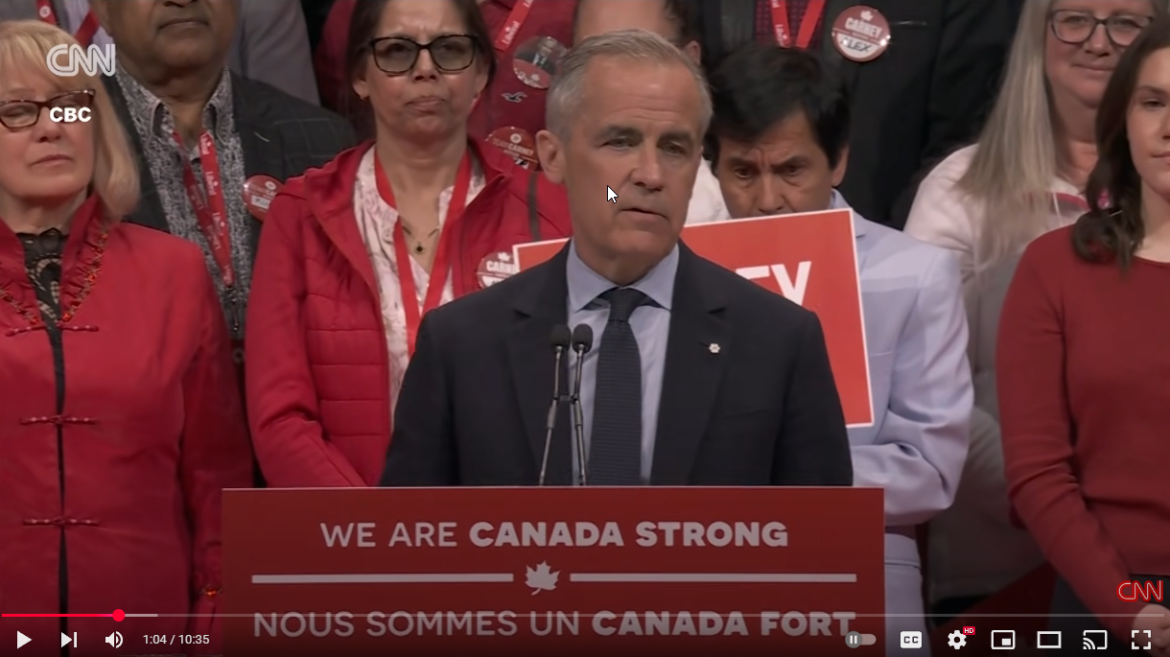Following President Donald Trump’s stunning election victory securing a second term, former Bank of Canada and Bank of England Governor Mark Carney delivers a pointed message that underscores Canada’s approach to U.S. relations moving forward. In a series of remarks that quickly gain international attention, Carney states clearly that Canada intends to “deal with the United States on our own terms,” signaling a firmer and more independent stance from America’s northern neighbor amid shifting global dynamics.
Speaking in a televised interview, Carney congratulates the American people on their election outcome but strikes a cautionary tone when discussing future North American relations. He emphasizes that Canada must prioritize its own economic and national interests rather than react to Washington’s political changes. “Canada will deal with the United States on our own terms,” Carney says, pointing to a new era of bilateral engagement defined less by historical alliances and more by pragmatic negotiation.
Carney, who currently serves as the UN Special Envoy on Climate Action and Finance and remains an influential figure in Canadian economic policy circles, highlights that Canada’s economy is strong enough to chart its own path without being overly reliant on U.S. trade and political decisions. He stresses the importance of diversifying trade relationships, accelerating investments in clean energy, and continuing to build robust ties with Europe and Asia, particularly given rising protectionist tendencies in U.S. policy under Trump.
The relationship between Canada and the United States has been complex during Trump’s presidencies. Trump’s first term saw the renegotiation of NAFTA, leading to the U.S.–Mexico–Canada Agreement (USMCA), which included hard-fought concessions on all sides. Trump frequently criticized Canadian trade practices, imposing tariffs on steel and aluminum and making personal jabs at Canadian leadership, particularly Prime Minister Justin Trudeau. Though relations improved slightly near the end of his first term, tensions linger over trade, climate policy, and defense contributions.
Trump’s re-election revives fears in Canada about potential economic volatility and renewed nationalist policies from the U.S., particularly concerning cross-border energy projects, agricultural exports, and the broader climate agenda. Carney warns that Canada must be proactive in asserting its interests, including standing firm on environmental standards, safeguarding supply chains, and defending Canadian sovereignty in international forums.
Political analysts interpret Carney’s comments as both a strategic warning and a signal of growing Canadian confidence on the world stage. Over the past several years, Canada has strengthened trade agreements with the European Union (CETA) and countries across the Pacific (CPTPP), reducing its dependence on U.S. markets. Carney’s emphasis on economic resilience and independent diplomacy reflects these broader national efforts.
In Washington, Trump’s team has yet to respond directly to Carney’s remarks. However, sources close to the administration say Trump plans to push for more favorable terms in all international dealings, including trade and defense cost-sharing with allies like Canada. Trump is expected to revisit policies designed to encourage domestic manufacturing and fossil fuel production, areas where Canadian economic policies diverge sharply.
Canadian officials, including Foreign Minister Mélanie Joly, echo Carney’s call for a strong, principle-based relationship with the United States. Joly states, “We look forward to working with President Trump’s administration, but we will always stand up for Canadian values, Canadian businesses, and Canadian workers.”
As Trump prepares for his second inauguration, the evolving tone from Canadian leaders signals that while cooperation remains possible, it will be carefully calibrated against Canada’s long-term interests. The coming months are likely to test the durability of U.S.–Canada ties in a geopolitical climate that is increasingly defined by competition, nationalism, and strategic independence.



